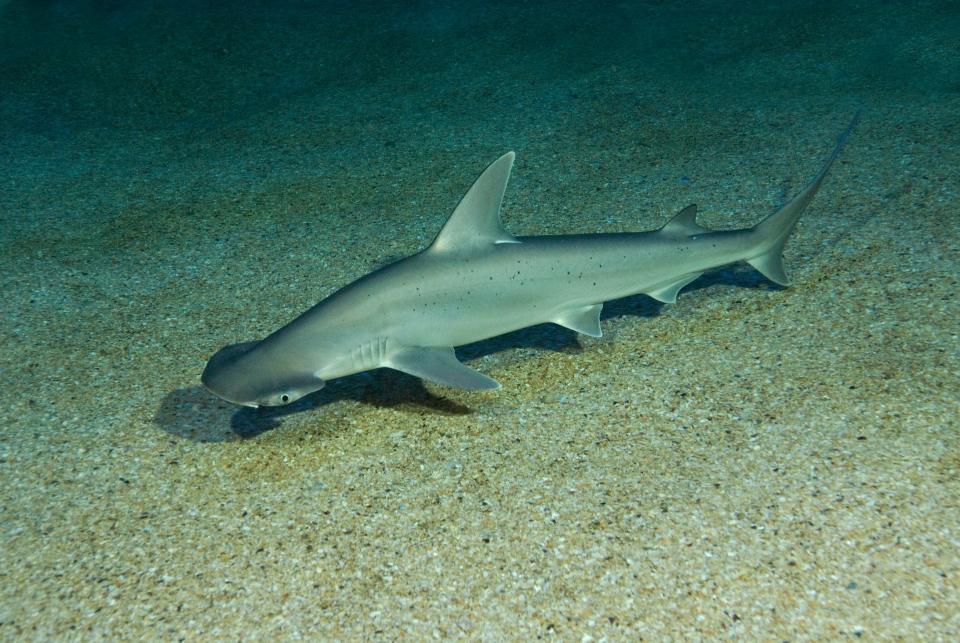The chances of getting bitten by a shark while you're swimming at the beach are surprisingly low

The chances of being attacked and killed by a shark are one in 3.75 million.
The US and Australia consistently report the most shark attacks each year.
But your chances of dying from a shark attack are rare and lower than death by a lightning strike.
Shark attacks are one of the most notoriously feared dangers to beach-going humans — but how likely is it that you'd actually get bitten?
Despite the mass fear surrounding the deadly animals, the chances of being attacked and killed by a shark are one in 3.75 million, according to the International Wildlife Museum.
The chances are lower than the possibility of dying by a lightning strike, a firework accident, or a stroke.
In the wake of deadly shark attacks in the Bahamas and Melaque, Mexico in December, we've examined the data behind shark attacks in the US and worldwide.
The US has recorded over 1,500 shark attacks in the last 185 years

Since 1837 there have been at least 1,596 recorded unprovoked shark attacks in the US, according to data obtained by the University of Florida's International Shark Attack File.
The most common place to be attacked in the US is Florida, with 912 attacks since 1837.
Hawaii, California, and South Carolina have all had between 100 and 200 attacks in that timeframe.
The US had the most recorded shark attacks in 2022

Around the world, there have been more than 3,000 shark attacks recorded in the last 50 years.
In 2022, the US had the most recorded shark attacks in the world with 41, one of which was fatal.
Australia, meanwhile, ranked second with nine attacks, but no fatalities. This is lower than Australia's five-year average of 15 attacks per year.
Shark attacks in the US are concentrated in Florida
Oceans off of Australia are known for being the habitat for deadly sharks, including the Great White, Bull, and Tiger sharks.
Most shark attacks occur near the shore, typically in sandbars or between sandbars where sharks can become trapped during low tide.
In deeper areas, like spots with steep drop-offs, sharks congregate because creatures they feed on also gather there.
Shark attacks are lower than in the past

The number of unprovoked shark attacks worldwide in 2022 was 57 — significantly lower than the annual average between 2017-2021, which was 70.
"It's likely that fatalities are down because some areas have recently implemented rigorous beach safety protocols, especially in Australia," Gavin Naylor, director of the Florida Museum of Natural History's Florida Program for Shark Research, told Forbes in February.
But it's important to note that shark attack numbers tend to fluctuate and just because they've been lower recently doesn't necessarily signal a continuous downward trend. Time will tell if this is the case.
Meanwhile, beachgoers, especially in hot spots in the US and Australia, should try to avoid waters with sharks as much as possible.
What to do if you're attacked by a shark

If you see a shark while in the water, keep your eyes on it while slowly swimming back to shore. Eye contact signals to the shark you know of its presence and are not easy, unsuspecting prey.
If you see a shark charge and it attacks, hit its eyes or nose and, if possible, stick your hands into its gills and pull hard.
While humans can sometimes be victims of sharks, far more sharks are victimized by humans each year.
Shark attacks worldwide are concentrated in the US
The worldwide shark population is in decline because of over-fishing — approximately 100 million sharks are killed every year by fisheries, according to the International Wildlife Museum.
Moreover, the destruction of their habitat due to climate change has forced sharks closer to land, thus closer to humans.
Malin Pinsky, an associate professor at Rutgers University's Department of Ecology, perhaps put it best in an interview with The Guardian in 2021: "Climate change is scrambling our ocean ecosystems and sometimes it produces surprises with a whole lot of teeth."
Editor's note: This article was first published in July 2018 and has been updated to reflect recent developments.
Read the original article on Insider

 Yahoo News
Yahoo News 
